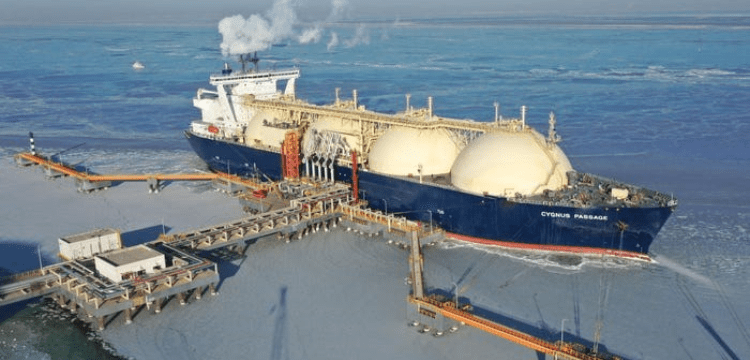[vc_row][vc_column][vc_column_text dp_text_size=”size-4″]The government has quietly delisted two power plants, which over four years ago, had been put on an active list for privatisation to raise an estimated $1.5 billion, aimed at selling these state assets to Qatar in a direct deal to avoid a looming sovereign default.
The development came two days after the government constituted a new cabinet committee aimed at selling the state assets on a fast-track basis. The 2460 megawatts (MW) capacity LNG-fired power plants will now be handed over to this committee to find a suitable foreign nation buyer.
Sources told The Express Tribune that a meeting of the Privatisation Commission Board (PCB) was called on Thursday to remove the plants from the privatisation programme. The Minister for Privatisation, Abid Hussain Bhayo, who is also the chairman of the board, was not even present in the city and virtually chaired the meeting.
The PCB typically makes a news release following a board meeting, but this time no statement was made, ostensibly to maintain the privacy of the topic. Requests for comments were not answered by the secretary of privatisation or the minister of privatisation. According to the sources, the board has advised the Cabinet Committee on Privatization to remove the power plants from the list of facilities eligible for privatisation (CCOP).
The privatisation list only contained these two significant assets. A Privatization Ministry or a Privatization Commission’s continued existence will be in doubt after their removal. The previous government, of the PTI, had put both the power plants on the active list of privatisations in an effort to raise roughly $1.5 billion for budget financing. In the past over four years, however, it could not address the issues or raise Rs103 billion in new debt to retire the government equity. These plants had been setup with government funding during the last PML-N government and are owned by the National Power Park Management Company (Private) Limited (NPPMCL), instead of the 70:30 debt to equity ratio benchmark allowed in NEPRA’s tariff for NPPMCL’s power plants. The sources said that the board meeting was informed that the PM’s office desired the delisting so that the plants can be sold under the Inter-governmental Commercial Transaction Act of 2022.
The Privatisation Ordinance of 2000’s lengthy and onerous process is replaced by the 2022 law, which permits the direct transfer of assets to foreign countries. While the direct sale structure may raise transparency concerns because the decision would be largely made by the government without going through a competitive procedure, the lengthy process nevertheless provides transparency.
One opinion holds that Qatar will only receive 30% of the equity and that the price will be determined using known variables, which will lessen the element of discretion. Due to the IMF program’s resurrection being delayed, Pakistan faces an immediate threat of sovereign default (IMF). The sale of the LNG-fired power stations has been identified by Finance Minister Ishaq Dar as one of the “low-hanging fruits” that would be sold to raise foreign cash. Dar has angrily refuted the claim that Pakistan will stop making payments on its debt.
After making two commercial loan debt payments totaling $1.02 billion on Friday, Pakistan’s gross official foreign exchange reserves fell below $4.5 billion. According to the central bank, the entire amount of debt repayments for the current fiscal year is $23 billion.The PCB had made the decision to re-engage Credit Suisse, Singapore in September 2022 to estimate the cost of the multibillion-dollar LNG-fired power projects that Qatar had been attempting to buy for the previous four years.
However, Credit Suisse has established the requirements of paying its roughly $1.7 million in unpaid debts and resolving three significant unresolved concerns that have prevented the privatisation of two LNG power plants with a combined generation capacity of 2,560MWs.
Pakistan hired Credit Suisse in April 2019 to sell the plants, but the agreement only lasted until October 2020 before being extended for a further 1.5 years. However, due to the underperformance of all parties, the contract ended once more on April 29, 2022.
In August this year, Qatar assured the IMF board of making a $3 billion investment in Pakistan, including purchasing both the plants, aimed at bridging a financing gap identified by the IMF staff. Meanwhile, the Prime Minister Shehbaz Sharif approved the establishment of a new Cabinet Committee on Intern-governmental Transactions.
According to the notification, Finance Minister Ishaq Dar will be the convener of the committee. Among the members will be the minister for commerce, minister for communication, minister for power, minister for law and justice, minister for the Board of Investment and minister of State for Petroleum.
The Cabinet Committee will authorise negotiations for a government-to-government agreement between the federal government and government of a foreign state, according to the notification. It will also constitute a negotiation committee for direct agreements or commercial agreements, as the case may be, and approve the price discovery mechanism, it added.
[/vc_column_text][/vc_column][/vc_row]











